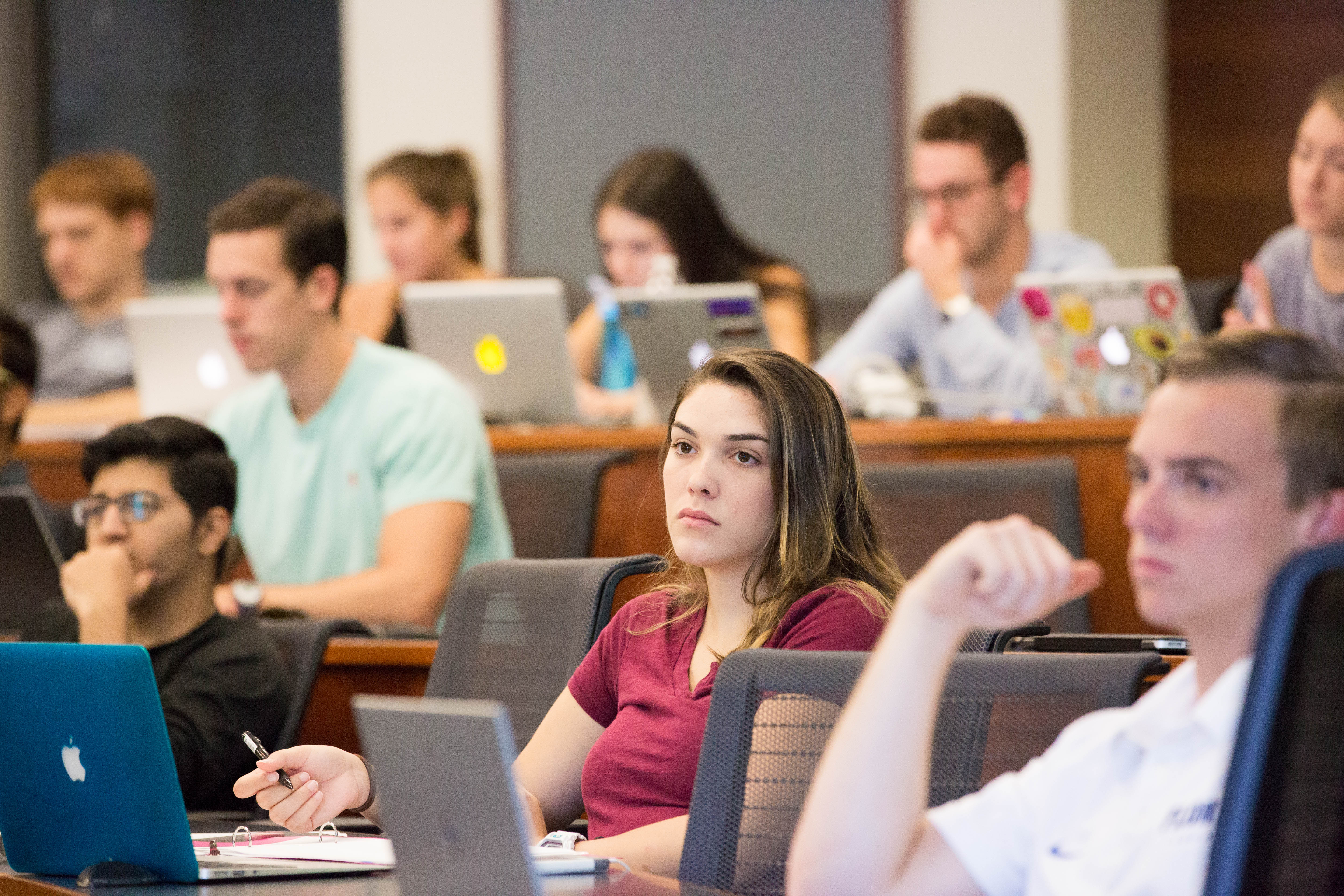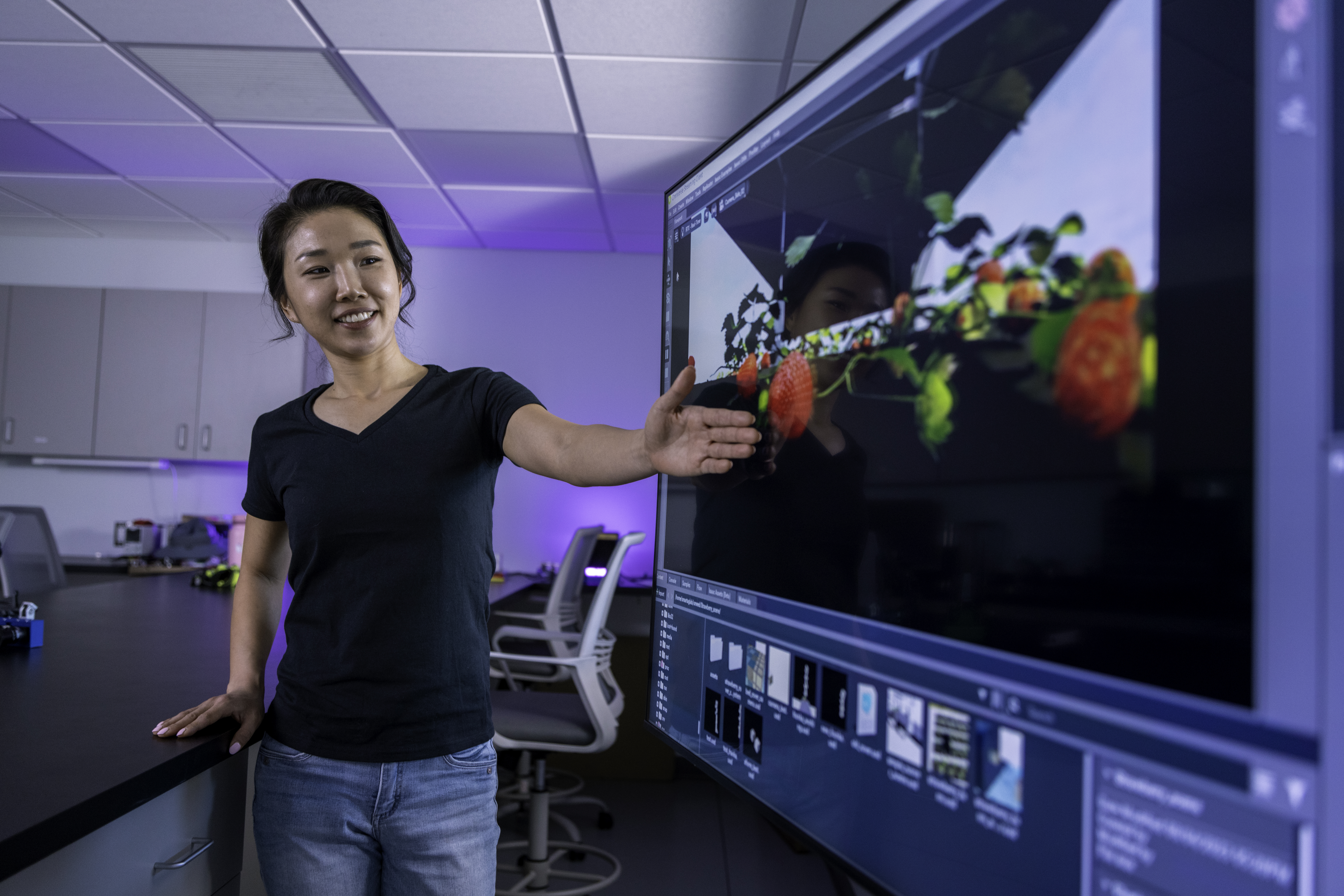About Us
UF Quest is a signature and transformational undergraduate core education program designed to engage students in interdisciplinary inquiry, civic responsibility, critical thinking, and real-world engagement. It is grounded in the Gallup-Purdue “Big Six” college experiences that correlate to lifelong well-being and career success (faculty mentorship, long-term projects, applied learning, extracurricular connection, deep engagement, and experiential education). Quest is transforming the core curriculum, elevating UF’s national leadership in undergraduate education and serves as a model for how core education can prepare students to meet the grand challenges of our time.
UF Quest's Story
UF Quest nurtures the intellectual curiosity of UF students and invites them to grapple with the difficult questions and challenges they will face as thoughtful adults navigating a complex and interconnected world.
Why UF Quest?
- To invite students to pursue knowledge more carefully and to think more thoughtfully about the majors, extracurricular activities, and research opportunities that truly speak to their passions.
- To encourage students to take creative and intellectual risks, follow fascinating lines of inquiry in uncertain directions, and become comfortable with beginning again (when the need arises) in order to achieve the richest possible undergraduate experience.
- To set students on a path to become thoughtful citizens of a complex and swiftly changing world, prepared to use the habits of questioning, analysis, and self-reflection to address the challenges life throws at them.
Quest 1
Quest 1 courses fulfill the UF Quest 1 requirement and may count towards the General Education requirement in the Humanities. They are three credit-hours and are organized under six overarching themes. Click on each to learn more:
Unlike typical lower-division courses, Quest 1 extends beyond any one discipline. Quest 1 courses are not a survey of or an introduction to a field. Instead, they apply humanistic modes of inquiry to a topic or theme in order to explore essential questions about the human condition. Quest 1 invites students to reflect on the kinds of questions that are not easy to answer and difficult to ignore.
Quest 2
Drawing on the tools of the biological, physical and social sciences, Quest 2 courses cut across disciplines to examine "pressing questions". They are organized under six overarching themes:
Where Quest 1 asks why the world is the way it is, Quest 2 asks what we can do about the problems confronting us.
Some Quest 2 courses may fulfill three credits of the General Education requirement in the Biological Sciences, the Physical Sciences, or the Social and Behavioral Sciences. Certain courses may also be used to fulfill three credits of the International requirement and/or count toward the Writing requirement.
Quest 3
The overall purpose of experiential learning at UF is to ensure students engage in specific, real-world activities that facilitate their personal and professional development and civic literacy. Experiential learning is the application of principles, skills, and conceptual understanding within a real-world context that leads to personal and professional growth. The requirement involves at least a semester long 3-credit (or equivalent effort if taken for fewer credits) practical experience in one of five areas: internship, undergraduate research, global engagement/study abroad, community/public service, or design initiative/creative endeavor.
Experiential learning is an essential component of successfully training the future work force of Florida. The Strada-Gallup Alumni Survey has surveyed tens of thousands of alumni nationwide over time and identified six critical college experiences that strongly correlate with positive lifelong outcomes regarding higher workplace engagement, well-being and preparedness to enter the job market. Of these, half require experiential learning opportunities. 8 of the top 10 essential skills for future graduates identified by the World Economic Forum are directly fostered by academic experiential learning, and the remaining two (technological literacy, AI and big data) are addressed in experiential learning opportunities in UF Quest related to AI.
UF has a rich tradition of valuing core education as the “common denominator of educated persons…the type of education which the majority of people must have if they are to be good citizens, parents, and workers,” as stated in the 1956-1957 UF Undergraduate Catalog.
Quest 3/ELAR (Experiential Learning Academic Requirement) has been under development since 2019 and is already in place for several units as a major requirement. The majority of remaining undergraduate degrees will add it during the 2025-26 academic year. By 2027, it will be fully implemented and will likely be the largest in the country.
Although this is a new requirement at UF, the rationale for it dates back to the very founding of UF as a land grant institution. Through various legislations, most importantly the Morrill Acts of 1862 and 1890 and the Smith-Lever Act 1914, land grant institutions were charged with conducting research, service and community outreach with a goal of making communities better and sharing knowledge. UF Quest 3/ELAR aids in this regard and shows the importance and utility of UF to the citizens of Florida and the nation.
“Universities that are not engaged with their communities in the 21st century will soon find themselves disengaged from any meaningful relevance to the citizenry of the United States. And that applies most particularly to land-grant universities…it is their heritage, their core commitment, going back to their birth.” – C. Peter Magrath
Quest 4
Quest 4 (currently under development) is an optional component of the program that is intended to provide a synthesis of the UF Quest experiences within the student’s discipline. In the future, academic programs will have the option of connecting their capstone experience to UF Quest.



